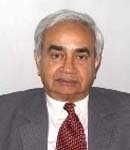North Korean Nuclear Test: Implications for Non-proliferation System
24 Oct, 2006 · 2138
PR Chari argues that the international community has to seriously address the basic issues underlying the proliferation of nuclear weapons
Endism being in fashion-recollect the Francis Fukuyama thesis which postulated that the end of the Cold War heralded the end of history-the nuclear test conducted by North Korea on October 9 has been proclaimed by doomsday prophets to portend the end of the international nuclear regime. In particular, the Nuclear Non-Proliferation Treaty (NPT), a pillar of that regime, is believed to be tottering.
In truth, dire predictions of the burial of the global nuclear order are made whenever a new challenger forces its way into the Nuclear Club: a nervous expectation then obtains that other nuclear aspirants would follow and exercise their nuclear option. A nuclear domino effect would, in effect, then ensue, leading to a proliferation chain reaction. One country conducting a nuclear test would lead to its neighbours feeling insecure and following suit by similarly undertaking nuclear tests and setting themselves up as nuclear weapon states. But, the determinism in this theory is fatally flawed by the reality that aspirant states must possess the technological capability, and not merely the desire, to derive their nuclear option. If nuclear wishes were horses, nuclear aspirants would ride.
More pertinently, in technological terms, a critical first step for the nuclear aspirant is to acquire the fissile material needed to derive its nuclear option. Since this is not on sale, the aspirant needs to manufacture the weapons grade uranium or plutonium required for this purpose. The process of enriching natural uranium to weapons grade, or reprocessing fuel rods derived from a reactor to yield weapons grade plutonium is not easy for a non-industrialized country. There is a considerable engineering effort required after that to shape the fissile material into a weapon. Thereafter, the problem arises of miniaturizing the nuclear weapon sufficiently to permit its delivery by credible means. What is being argued here is that there is no reason to believe that, whenever one country explodes a nuclear device, others will quickly follow suit, unless they already possess that capability, and this is also true of North Korea's neighbours. Incidentally, there is considerable skepticism at present whether North Korea's nuclear test had, indeed, succeeded, or had ended in a "fizzle" due to pre-detonation of the device.
A more sophisticated theory can also explain why the nuclear domino theory is flawed; it argues that proliferation does not prejudice international stability, but the pace at which it occurs is critical. If that pace is slow and measured, allowing the international system time to adjust new entrants into the nuclear regime, there is no danger to international stability. However, a rapidly accelerating pace spells danger. Viewed in this perspective, North Korea's nuclear test, some eight years after India and Pakistan conducted their reciprocal tests and were adjusted into the international nuclear regime, need not be destabilizing if South Korea, Japan and, possibly, Taiwan do not rapidly go nuclear, permitting North Korea to be suitably accommodated into the international nuclear regime.
The angst, moreover, that North Korea's nuclear test would inspire South Korea, Japan and Taiwan to go nuclear is quite misplaced. They must individually weigh the costs and benefits of going nuclear in terms of whether this would add to their security or heighten their vulnerability. Will it, for instance, deter terrorism or a less-than-full-scale conventional attack by North Korea? Can they, especially South Korea, afford a nuclear conflict with North Korea? It is another matter that Pyongyang was inspired by the India-Pakistan tit-for-tat nuclear tests in May 1998, and its leadership had noted that Pakistan gained respectability after it proclaimed itself to be a nuclear weapon power. But there are more substantive reasons that impelled Kim Jong Il to conduct a nuclear test like his quest for security vis-à-vis a hostile United States, pique against China for pressuring him to abandon that quest, and fears of an imminent attempt to effect a regime change.
These questions can be endlessly debated. The more important question is: what can the international community do to arrest North Korea's further nuclearization, and dissuade other nations from tredding the nuclear path. Turning the sanctions screw further against North Korea would cause a humanitarian disaster with an exodus of its population into China and South Korea. Continuing with the current Six-Party talks, as if nothing has happened, would encourage Iran to believe it could follow suit. The unfortunate lesson of the North Korean test is that, if any country wishes to defy the United States, it should make sure it possesses nuclear weapons. Hence, the international community has to seriously address the basic issues underlying the proliferation of nuclear weapons and not look for short term palliatives by sweeping that generic problem under the carpet. Reviving the Six-Party-Minus-One (less North Korea) talks to cogitate over these basic questions seems urgently needed.


